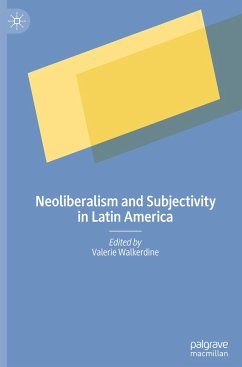
The Zapatista Conflict: Mexico's Political Paradox
The struggle between the individual, the nation, and globalization
Versandkostenfrei!
Versandfertig in 6-10 Tagen
32,99 €
inkl. MwSt.

PAYBACK Punkte
16 °P sammeln!
On January 1, 1994, a small peasant army known as the Zapatistas took control of several towns in the Mexican state of Chiapas to protest the erosion of national sovereignty and indigenous rights caused by the federal government's policies promoting neoliberal globalization. Paradoxically, after the uprising, the Mexican government perceived the Zapatista rebellion as a direct threat to state sovereignty, while the Zapatistas became dependent on global technology and civil society to promote their cause. The translation of the economic debate into the Zapatista rebellion highlights the contrad...
On January 1, 1994, a small peasant army known as the Zapatistas took control of several towns in the Mexican state of Chiapas to protest the erosion of national sovereignty and indigenous rights caused by the federal government's policies promoting neoliberal globalization. Paradoxically, after the uprising, the Mexican government perceived the Zapatista rebellion as a direct threat to state sovereignty, while the Zapatistas became dependent on global technology and civil society to promote their cause. The translation of the economic debate into the Zapatista rebellion highlights the contradictions of an increasingly globalized economy and its unacknowledged consequences on the individual.












